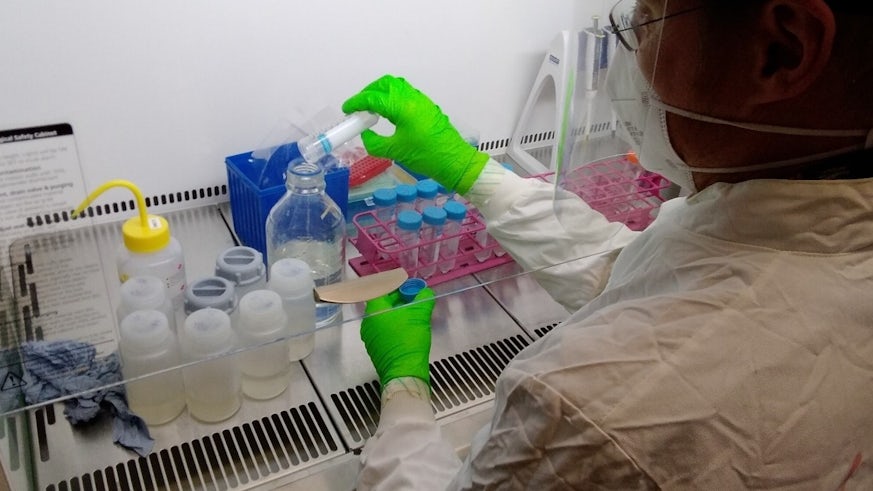Extension of the WEWASH project to continue monitoring levels of COVID-19 in wastewater across Wales
19 January 2021

The interdisciplinary team behind the WEWASH project will continue to sample and test wastewater to estimate the occurrence of the virus in Wales.
The Wales Environmental Wastewater Analysis and Surveillance for Health project (WEWASH), led by Bangor University, Cardiff University, Dŵr Cymru Welsh Water and Public Health Wales has been extended for another three months to continue monitoring levels of COVID-19 in wastewater across Wales.
Prof Davey Jones, Professor at Bangor’s School of Natural Sciences says: ‘This funding extension provides an opportunity to expand the programme. In the longer-term, monitoring will continue to be essential as the viral infection eventually moves from pandemic to endemic’.
Andy Weightman, Professor of Microbiology and Head of Division in the Cardiff School of Biosciences, also welcomed the extension of funding for 'a great collaboration between Welsh institutions, Government and the water industry, moving our research towards establishing wastewater monitoring of SARS-CoV-2, and helping to combat future spread of the virus in Wales. The extension will allow us to consolidate the work and build a solid base for environmental surveillance for health across the Nation'.
The first phase of the project established the monitoring system, protocols and workflows. By continuously sampling and testing, the team provided an early warning system of the increased occurrence of the virus. This was particularly helpful to assess the efficiency of the Welsh Firebreak lockdown in October which reduced the occurrence of the virus at first but was followed by a rapid rise in cases post-intervention.
Initial results also detected a weekend periodicity signal in locations such as Rhyl, indicating that tourism could increase the load of SARS-CoV-2 in wastewater. Further research is currently being conducted to assess the differences in samples collected during the week, representing the local population, and those collected over the weekend, including the tourism influx.

The project particularly considered COVID-19 outbreaks in halls of residence at Bangor University. The early detection of the virus within a specific student residence last year enabled the University to take actions to quickly limit the spread of the virus on campus.
The use of water-based epidemiology for tracking emergence and spread of Covid-19 in Wales has since then led to the establishment of a nationwide monitoring programme. The WEWASH Team was involved in the mass testing of Liverpool, expanding the Welsh expertise beyond Wales.
Prof Isabelle Durance, Director of Cardiff University Water Research Institute says: 'The success of this pan-Wales team in securing this extension is evidence of the power of bringing together experts from different disciplines to tackle such complex societal challenges. It also demonstrates the potential value of water and wastewater surveillance for Wales.'
Building on the success of WEWASH partnerships, Dr Kata Farkas from Bangor University and Prof Andrew Weightman from Cardiff University secured additional funding to look at the survival of the SARS-CoV-2 virus in the environment, in collaboration with the University of Liverpool and the Liverpool School of Tropical Medicine. Together, they will develop rapid detection techniques and provide vital information on the movement of viruses within the environment.
To find about more about the WEWASH project follow @WEWASH3 on Twitter.
Share this story
For more information, visit the Water Research Institute website.

